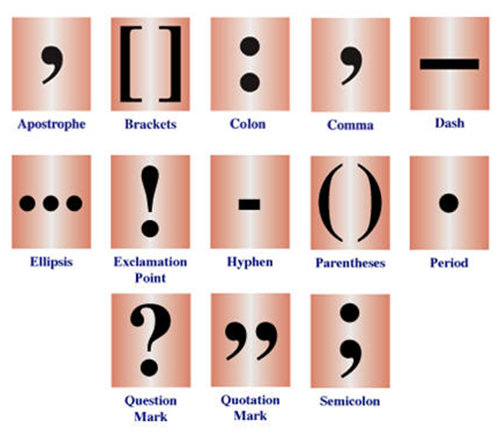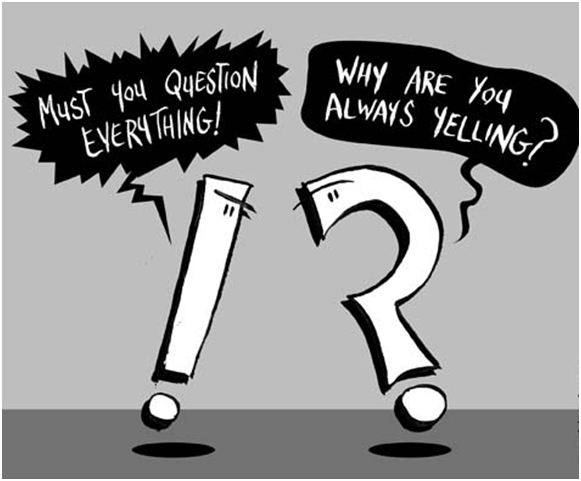5 Email marketing etiquette
Since its introduction in 1993, email usage has phenomenally grown to overtake postal mails and is now the global preferred mode of communication. Businesses are among the largest users of Email, which is seconded only by the telephone. Due to the immense reach of emails, companies are now harnessing its power for marketing. However, instead of rampant bombardment of marketing emails, it's better to follow certain protocols. Below are 5 email-marketing etiquette.

Email marketing etiquette
1. Concise description
It is better to have the email short and sweet. People generally avoid lengthy marketing emails as they look like spam and nothing else. State your key points briefly and in a catchy way.
2. Avoid extreme long signatures
Extremely long signatures should be avoided, as it is unnecessary. Email signatures should only include important contact information and nothing else. Email signatures should be kept as short and simple as possible. There is no need to include page long terms and condition clause, just a short one-liner and a quick link is enough.
3. Target audience
This etiquette is difficult to implement. Marketers should identify their relevant audience and send the emails to that list only. Untargeted emails will only result in more spam marking.
4. Avoid long tails
Long tails are that part of an email, which appears below your message and signature. Make sure every email you send is newly composed and does not include a long tail. If you include the long tail by mistake, you could be sharing confidential or embarrassing information.
5. Too much humor is bad
Humor is the best asset in marketing, but only when it is used sparingly. While writing an email, it is better to keep the email body as simple and clean as possible. Excessive use of bold letters, colors, all-caps, changing font sizes, images should be avoided at all costs, as it increases the loading time of an email and the prospective recipient may just close the email.

Sample Marketing Email
Subject: Home Furnishings
Dear Mr. George,
We at Santa Furnishings Company have had the pleasure and privilege of helping turn people's dreams into tangible realities for the past 15 years.
Our store offers a wide range of home furnishings, ranging from curtains to sofa covers to drapes to bed covers. All in all, if you have thought about it, we have got it!
You can visit our website and check out on the wide spectrum we offer. By ordering online, you cannot only get to shop at your convenience but also avail a special discount of 20% on all furnishings.
We also offer Live Chats with our experienced and talented interior decorators and architects who can help you with any queries and doubts. We also provide customized services.
We look forward to hearing from you soon, as the discount of 20% can be availed only within a period of the next 10 days.
Thanking You,
Sincerely,
Julia Roberts
Marketing Manager
Santa Furnishings Company
New Delhi
(This email address is being protected from spambots. You need JavaScript enabled to view it.)
Website: www.santafurnishings.in

The above sample inculcates the five important etiquettes. Improve your English communication skills to draft the perfect marketing email. You can improve your English writing skills with the help of an online English tutor or with a friend. A properly drafted marketing email can get you many possible leads. Happy emailing!
About eAgeTutor:
eAgeTutor.com is a premier online English learning institute. eAge's world class faculty and ace communication experts, from around the globe, help you to improve in an all-round manner. Assignments and tasks based well researched content developed by subject matter and industry experts can certainly fetch the most desired results for improving spoken English skills. In this age of effective and advance communication technology, online spoken English programs are the most effective and convenient way to learn English.
For further information on our online English speaking courses or to experience the wonders of the virtual classroom, fix a demonstration session with our tutor.
- By Monika Agarwal
Related Topics:
1. What is some important email etiquette?
2. How to Write a Formal Email Regarding a Leave/ Off?
3. How to Write Various Greeting Messages?
4. How to Write a Resume for a Job?
How to Maintain Your Social Image?
 Social networks like Facebook, Twitter, LinkedIn, etc. have grown by leaps and bounds in the recent past. So much so that, our virtual lives and images weigh heavily on our personal lives as well. The people you connect with online shape and influence your online image. Moreover, how you interact with people is more important for having a pleasant and sophisticated online image. Your language matters a lot.
Social networks like Facebook, Twitter, LinkedIn, etc. have grown by leaps and bounds in the recent past. So much so that, our virtual lives and images weigh heavily on our personal lives as well. The people you connect with online shape and influence your online image. Moreover, how you interact with people is more important for having a pleasant and sophisticated online image. Your language matters a lot.
How to improve English communication for the social platform?
The way we communicate with friends and colleagues in real life conversations is different from how we conduct our online English communication. In real, face-to-face conversations, we exchange not just words, but also body language, expressions, emotions and more. Using these additional aids, we put across our words to voice our thoughts. In case of online communication, it is exactly the opposite. We have to rely on words alone to convey emotions, body language, and feelings. Therefore, if the saying goes 'think before you speak', there should be another saying 'read before you post'. One needs to weigh the words and be careful with the tone of writing when interacting online.
There are a certain rules which one should adhere to. This will help you in making sure that your image is not affected, whilst keeping sure that your friends and acquaintances are pleased with you as well!

Here are a few tips:
Maintain a pleasant tone in all your online English communications:

People take their online image seriously, just like you do. Many times, things we say in jest can prove to be hurtful to others. Therefore, it is important to make sure that you select your words carefully and weigh them before posting. Keep your grammar lessons handy as punctuations also matter a lot in softening or hardening your tone. Many people have the annoying habit of writing in caps. In virtual communication, writing in caps is the equivalent to shouting or stressing. Do not do that unless you are really writing an angry post or comment.
Respect the privacy of others:
What you wish to post online and how much you are ready to show to the online audience depends on you. With social media becoming increasingly rampant, the onus of deciding one's limits of privacy lies with each individual. Just as you are the master of your privacy, you need to respect other people's privacy as well. Posting offending pictures of your friends and acquaintances, tagging them in useless posts, etc. account for an annoying virtual behavior. Also, if you wish that people take your online avatar seriously, make sure that what you post makes sense and is written in correct English. You can creatively utilize the social media to learn and improve your English communication!

People often ask us questions like 'how to improve communication skills'. Our answer to such queries is simple – join eAgeTutor, and with the help of our English speaking courses online polish your spoken and written English skills. The willingness to learn and our online English speaking courses together can make you achieve your dream of being a master of the English language!
About eAgeTutoring:
eAgeTutor.com is the premier online tutoring provider. eAge's world class faculty and ace communication experts from around the globe help you to improve in an all round manner. The assignments and tasks, based on a well researched content developed by subject matter and industry experts, can certainly fetch the most desired results for improving spoken English skills. Overcoming limitation is just a click away in this age of effective and advance communication technology. For further information on online English speaking course or to experience the wonders of the virtual classroom, fix a demonstration session with our tutor.
For further information on our online English speaking course, please visit www.eagetutor.com.
- By Monika Agarwal
Related topics:
1. How to Communicate on Social Media Platforms?
2. How to Improve Communication Skills?
3. How to chat online with friends?
Tips for Improving Pronunciation II
When you are having a conversation with others in English, do you have to repeat your sentences over and over again? Maybe it is not because you speak too fast, rather it could be due to your pronunciation. Yes, pronunciation plays a big role in developing your communication skills.
How you pronounce a word depends on two things – your tone and accent. For you to become proficient with the English language, you need to work on and improve English pronunciation. We have already given you useful tips for improving and understanding the right pronunciation. Practicing and selecting an accent are just the primary stages. Apart from that, there are various other ways to help you improve English pronunciation.
Before we explore the ways to get this task accomplished, let us learn why is it so important to learn and understand the rules of pronunciation.
English language is used for communication. The definition of communication is, strictly speaking, to share the ideas and thoughts using a common medium. Now , if two people speak two different 'varieties' of English, it will completely defeat the purpose. So, yes, we need to pronounce words in a particular way to facilitate understanding and sharing.
Secondly, the way you pronounce a word and how well you use it speaks oodles about your fluency with the language.
Now that you understand just why you need to improve English pronunciation, let us learn how to go about it.
• Break the words: This tip is especially handy when you encounter long words, and are left scratching your head, wondering what to do about it! In such cases, breath in, calm down and look at the word again. Let's us take one word for example, 'farther', now why not break this word in two and then try reading it again? 'Far'-'ther', now reading these 'two' words is easy, and once you have done that, join the two and read them together. You can apply this rule to most words: pro-nun-ciation, prag-matic, audio-visual!
• Record yourself: Do you fear that you fumble, speak too slow or fast or that you take long pauses, to give yourself some thinking time? The best way of finding out your mistakes, and eventually improving on them, is to record yourself when you speak English. This way you can hear it repeatedly and know where you make mistakes.
• Pay attention to the sounds: English is a confusing language, and we cannot stress enough about it. Many words are spelled differently from the way they are pronounced. Moreover, many words, when spoken together 'sound' a lot different. For example, if you are listening to English songs, you will realize that many times 'don't you' sounds like 'donchu'. To understand such words, you need to pay attention to the 'sounds' of words.
If you wish to improve English pronunciation, understand that it is not a one-time job. A good English language student is the one who keeps learning and improving. Getting a grip on the English language will help you excel in your career as well as boost your confidence. Get in touch with eAgeTutor and take your first step towards learning the English language.
How to Use Punctuation Correctly? Part - I
One of the most common and basic mistake that most of us commit while writing is the wrong use of punctuation marks. In today's modern age, when we are more fluent with the SMS language and the slang terms, we have forgotten the fundamentals of English like Punctuation. How many of us can proudly say we know A-Z about punctuation. Let's consider this article as your free English learning guide to punctuation.
Definition of punctuation
Wikipedia definition
"Punctuation marks are symbols that indicate the structure and organization of written language, as well as intonation and pauses to be observed when reading aloud."
The Oxford dictionary defines, "the marks, such as a full stop, comma, and brackets, used in writing to separate sentences and their elements and to clarify meaning."
In simple words, a set of symbols that are used in writing to guide a reader know the structure of a sentence. Punctuation guides us to change the rhythm, highlight a word in our speech and show the right expression. The common punctuation marks in English include the comma, apostrophe, period, quotation mark, exclamation mark, question mark, bracket, hyphen, dash, semicolon, ellipsis, and colon. Each punctuation mark has a specific purpose and use in the English language. Some may have varied meanings; based on the context they are used.
Punctuation rules 
End of the sentence punctuation
Every sentence that you write has to end somewhere. This ending punctuation mark can be a full stop or period, exclamation mark, question mark or an ellipsis. These punctuation marks terminate a sentence. The default terminal punctuation mark is a period or a full stop.
Ex: He lives in Chicago
The period is used here to finish the sentence without disclosing any other meaning.
Question mark: When you end a sentence in a question mark, you suggest an inquiry or an interrogatory remark.
Ex: What is your name?
The question mark is used to inquire a person's name.
Exclamation mark: It is used to suggest excitement or emphasis in a sentence.
Ex: I can't believe I am going to UK!
Ellipsis: It is a punctuation that is used when some part of a sentence is being omitted; usually used in quotes.
Ex: "[...] the President was excited as he laid out the growth policies in the agricultural sector."
Semicolon (;) vs. colon (:)
We all have studied the use of Semicolon while learning English grammar in our school. However, do you understand the difference between a colon and a semicolon? A semicolon is used when the writer wants to link two related, but independent clauses. There is always an argument, why not a period but a semicolon. Of course, if you think your sentence is too wordy, you can use a period, but avoid using it if you think it will create a strong break between the sentences.
Example: Several fast food restaurants can be found within the cities: London, England; Paris, France; Dublin, Ireland; and Madrid, Spain.
Now, let's learn the English lesson on the use of the colon. This punctuation mark is used to introduce a list. It can be used with ratios, titles and subtitles of books, hours and minutes.
Example: The concert begins at 21:45.
The following are our services:
We shall continue our free English learning session in our next blog on how to use English punctuation correctly. Till then, practice and observe the above punctuation marks to improve your English skills.




